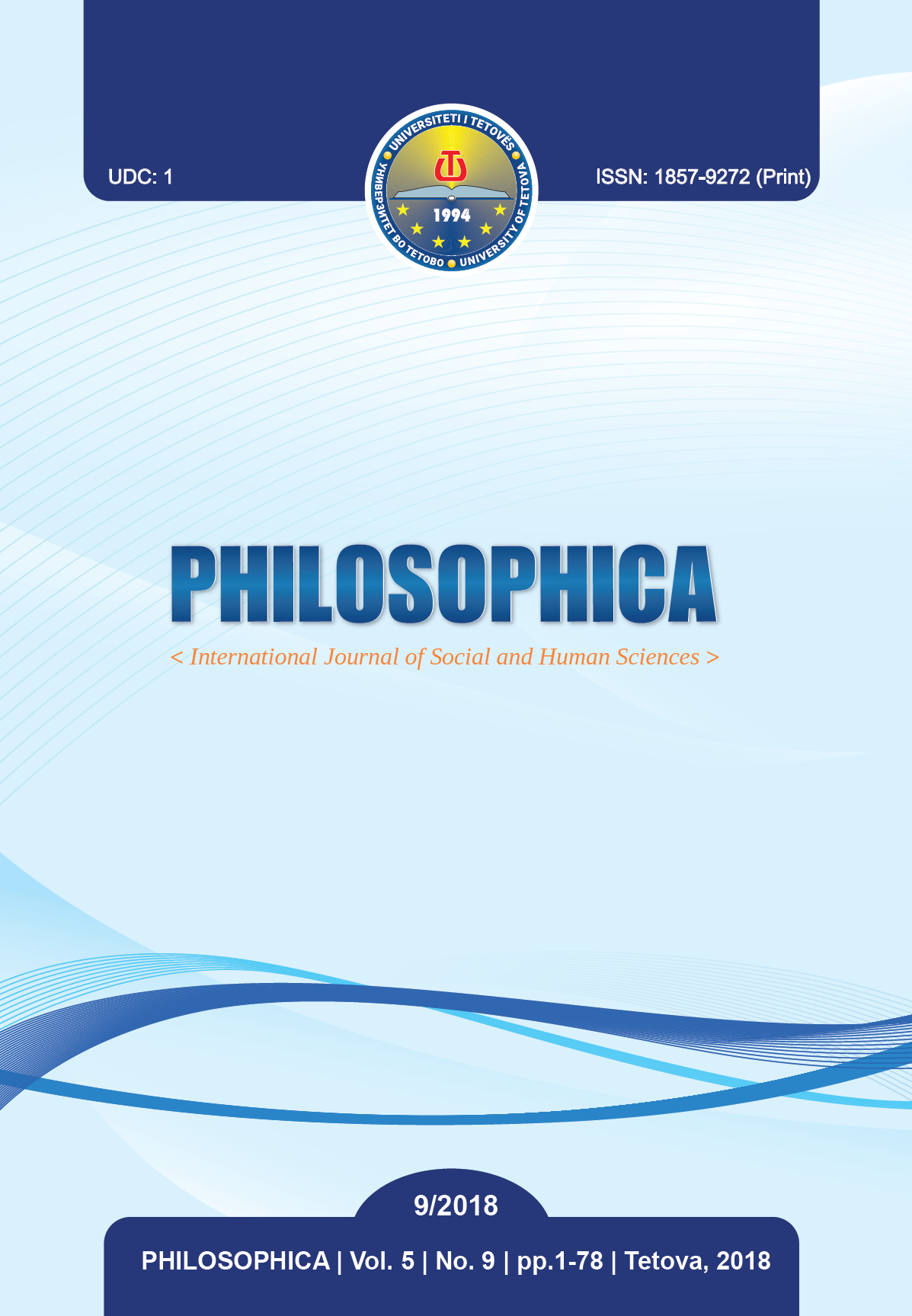THE INDIVIDUAL WITH HIS OWN MIGRATION, BRINGS THEIR CULTURE, LANGUAGE AND LANGUAGE VARIATIES OF THE COUNTRY’S SPOKEN LANGUAGE
THE INDIVIDUAL WITH HIS OWN MIGRATION, BRINGS THEIR CULTURE, LANGUAGE AND LANGUAGE VARIATIES OF THE COUNTRY’S SPOKEN LANGUAGE
Author(s): Merita BanjicaSubject(s): Philosophy, Language and Literature Studies
Published by: University of Tetova
Keywords: expressive forms;emotional;social and conflictual;urban talk;
Summary/Abstract: Living in urban areas is modern and becomes more attractive for everyone, so every day the number of citizens increases and the urban language changes and migrant individuals also transfer the language into their own language variety. Albanians speak a language, but it differs according to the origin of the speaker from the linguistic variety. This is mostly observed in spouses of different backgrounds, affecting their linguistic interaction in the speaking of family members and others. Speaking interactions reflect expressive, emotional, and conflicting forms of expression. Each individual within him creates a personal speaking prototype that creates it on the basis of genetic dialect and develops his speech under the influence of various factors by generating new words and phrases in linguistic interactions when talking with other speakers of different social communications according to several authors. This research aims to clarify the use of expressive forms in Gostivar's urban language in the Republic of Macedonia and focuses on two objectives: to clarify the scientific concepts of language forms according to the urban folk linguistics, where the individual is a bearer of culture and linguistic variety. to illuminate the use of different forms of expression in the Gostivar urban vocabulary based on the findings reflected in the questionnaires from the interviews with 32 individuals from different places living in Gostivar as spouses of 16 monolingual marriages which speak in different language varieties. We will present the findings with quantitative and qualitative analyzes by sex, where we will see the use of expressive forms of the Albanian language in the spoken language of Gostivar from the dialects of the Republic of Kosovo, the Republic of Albania and the Republic of Macedonia.
Journal: PHILOSOPHICA International Journal of Social and Human Sciences
- Issue Year: 5/2018
- Issue No: 09
- Page Range: 32 - 42
- Page Count: 11
- Language: English

